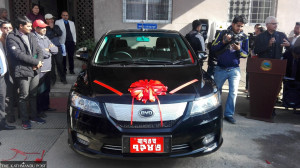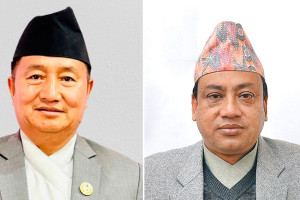Miscellaneous
Col extradition may be affected
The delay in criminalising torture and establishing a special court to look into conflict-era cases is likely to jeopardise the government’s effort to extradite a Nepal Army colonel, who is being tried in a UK court on charges of extrajudicial detention and torture.
Dewan Rai
The delay in criminalising torture and establishing a special court to look into conflict-era cases is likely to jeopardise the government’s effort to extradite a Nepal Army colonel, who is being tried in a UK court on charges of extrajudicial detention and torture.
Bills to criminalise torture and disappearance and amend the existing Enforced Disappearances Enquiry, Truth and Reconciliation Commission (TRC) Act are ready to be tabled in Parliament. In fact, the government had drafted a torture bill following the arrest of Col Kumar Lama from his family home at St Leonard-on-Sea in East Sussex, England, in 2013. However, these bills have yet to tabled in Parliament.
The hearing of Lama’s case at the Old Bailey criminal court in London is going on, which is expected to complete in a few weeks. Lawyers involved in the case expect the verdict by end of August.
They argued that the
chances of Col Lama being extradited are slim given the maturity of the case and
inadequate preparedness in Nepal. Nepal will have to initiate the process for extradition before the British court delivers its verdict by ensuring fair trial in Nepal.
The government’s chief legal adviser argued that Nepal still has time to take the process forward. “We have readied the bill criminalising torture and amended the Transitional Justice Act to facilitate the process,” said Attorney General Hari Phuyal. “If we fulfil all the legal and procedural requirements, extradition of Col Lama is highly likely.”
Phuyal, a renowned rights lawyer, was quick to mention the limitations too. “However, it is absolutely in the discretion of the British judiciary whether or not to send Col Lama to Nepal.”
Criminalising torture and setting up a competent court equivalent to the UK court to continue his trial are fundamental bases on which the extradition process can be negotiated.
Then, Nepal is required to sign the Extradition Treaty or Mutual Legal Assistance Agreement with the UK to transfer the case.
If the case is passed on to Nepal, the Attorney General’s Office will register a separate case against Lama at the Special Court for trial. A separate article has been proposed to deal with cases against Nepali nationals registered in foreign countries in the existing Transitional Justice Act.
“Successful extradition of Col Lama and his trial in our country will end all fears of arrest of Nepali nationals outside the country,” said Phuyal.
Nepal has already formed the TRC and the Commission of Investigation on Enforced Disappeared Persons. The commissions have been registering complaints from conflict victims.
The AG’s office and the Law Ministry reviewed the bill adding the provision of removal of the statute of limitations on torture cases to allow victims to seek remedy under the laws existing at the time of filing the case.
Lama was arrested by the UK as per the country’s obligation under the UN Convention Against Torture. Nepal ratified the UNCAT in 1990, two years after the UK adopted the provision of the convention by introducing Section 134 to discharge its international obligation.
Lama has been accused of detaining and torturing two alleged Maoist rebels when he was at the NA barracks in Gorusinge of Kapilvastu district in 2005.
CPN (Maoist Centre) Chairman Pushpa Kamal Dahal, recently, cancelled
his trip to Australia fearing arrest there. The Australian embassy later assured Dahal that there was no threat for him in Australia.




 23.8°C Kathmandu
23.8°C Kathmandu












